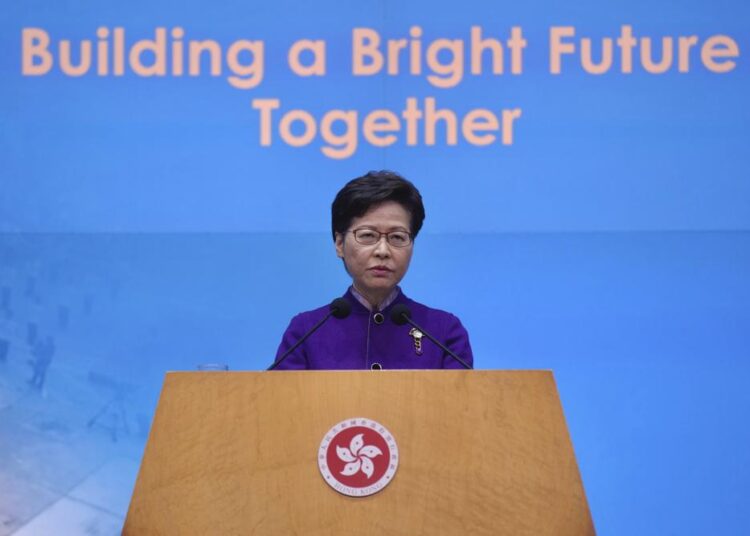HONG KONG — Pro-Beijing candidates dominated Hong Kong’s legislative elections, beating out moderates and independents in the city’s first public poll after Beijing passed a resolution to amend the city’s election laws.
Candidates loyal to Beijing won a majority of the seats in Sunday’s election after the laws were changed to ensure that only pro-Beijing “patriots” could run the city.
“In this election, 1.35 million voters cast their votes. They did not just return candidates of their choice to LegCo, and I think it was also because of their support for the improved electoral system,” said Lam, referring to the city’s Legislative Council.
Under the new laws, the number of directly elected lawmakers was reduced from 35 to 20, even as the legislature was expanded from 70 to 90 seats. Most of the lawmakers were appointed by largely pro-Beijing bodies, ensuring that they make up the majority of the legislature.
All candidates were also vetted by a largely pro-Beijing committee before they could be nominated.
Lam said that even if there was a high turnout based on “poor politics,” such as the political polarization during the period of political strife in 2019, that is “not something we should be glad to have.”
Starry Lee, an elected pro-Beijing legislative council candidate from the Democratic Alliance for the Betterment and Progress of Hong Kong party, said the 30% turnout was within “general public expectation.”
“As I have mentioned before, this is a new system, this is a system that we call patriots administrating Hong Kong,” Lee said.
“This is a different one from the previous one, therefore you cannot compare directly. And I believe that with the new system, people need time to get used to that.”
The opposition camp has criticized the elections, with the largest pro-democracy party, the Democratic Party, fielding no candidates for the first time since the 1997 handover.
Lam said she expects that work with the 90 legislators will be “very exciting” because they have different opinions on many social issues.
Lam was expected to travel to Beijing later Monday on a duty-reporting trip, which she says is to give a full account to Beijing of the latest political and economic situation in Hong Kong.
“I expect to cover a wide range of issues on this particular duty visit because through two very decisive acts of the central authorities, Hong Kong is now back on the right track of ‘one country, two systems,’” she said.
Hong Kong leader Carrie Lam said during a news conference Monday she was “satisfied” with the election despite a 30.2% voter turnout — the lowest since the British handed Hong Kong over to China in 1997.
She said that the number of registered voters reached 92.5%, a record high compared to the 2012 and 2016 elections, when around 70% of voters had registered.
“For registered voters, deciding whether they want to exercise their voting rights in a particular election is entirely a matter for themselves,” she said.






Discussion about this post